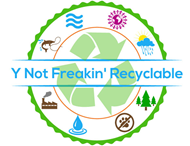One of the most important things we have learnt so far is that urgent, decisive action can turn a crisis around.
Long before COVID-19, the world has been facing the challenge of flattening the greenhouse gas emissions curve. The Intergovernmental Panel on Climate Change—the world’s leading body of climate experts—has warned that we have only 10 years left to keep global temperature rise to a maximum of 1.5oC, beyond which even half a degree will significantly worsen the risk of drought, floods, extreme heat and poverty for hundreds of millions of people. At our current rate, global temperatures are on course to reach a temperature rise of at least 3oC by the end of the century, signalling irreversible environmental catastrophe.
Just as implementing swift protective measures can slow down the emergence of positive COVID-19 cases and keep society within the healthcare system capacity , similarly, prioritising sustainability measures can reduce climate risks and keep us within the earth’s capacity.
While global carbon emissions are likely to fall this year as a result of COVID-19’s impact on economic activity and transport, this decrease is temporary and emissions are expected to rebound when economic activity recovers—unless we take decisive action to change business as usual.
For starters, the coronavirus outbreak has triggered the world’s largest experiment on remote working. Businesses and organisations are investing resources into systems for remote working, including taking meetings and conferences online.
Many employees and employers are already growing accustomed to this way of working and forming new habits, especially as they start to recognise the benefits of flexible work arrangements. Beyond the pandemic, we have an opportunity to re-evaluate the necessity for business travel. That four-hour flight to attend a business meeting? That could easily be replaced by a Zoom call, which will also help to reduce our carbon footprint. Should at least some of these work habits persist beyond the crisis, we will see lasting impact on carbon emissions, especially in the transport sector.
This pandemic is a wake-up call to stay within our planet’s limits. Over the last two decades, experts have been warning that biodiversity loss and the disruption of ecosystems can create conditions for new viruses and diseases to emerge. Global temperature rise alters the timing, geography and intensity of disease around the world, and could help to facilitate the rise of new disease outbreaks like COVID-19.
The earth is a living organism, responding to signals and input much like the human body; now, it seems the planet is telling us to rest. It is high time to rethink industry and economic activity, moving away from the old paradigm of growth without limits. The signs of our planet healing while human activity comes to a standstill is a stark reminder of the tremendous impact humans have on our natural world: industries such as aviation take a huge toll on our planet’s carrying capacity and have contributed to accelerating the spread of the virus in our increasingly globalised and interconnected world.
If present trends in industrialisation, population growth and resource depletion continue unchanged, and if we do not respect the limits of our planet, then we are setting ourselves up for disaster. Notably, the food security and supply chain disruptions that we are facing now, are also likely scenarios in a climate emergency. On a more positive note, this interruption of business has turned the attention of food producers to communities in need closer to home, inspired an e-commerce giant to develop an online platform for local farmers and brought to light alternative delivery channels to keep supply chains moving.
From political leaders and businesses, to civil society and local communities—we all need to respond to the climate crisis with the same bold resolve, putting in place policies and regulations to reduce our carbon footprint, braving behavioural shifts, and establishing socio-economic safety nets for the most vulnerable.
The Chinese have given us wisdom for the situation in which we find ourselves. The Chinese word for crisis (wéi jī, 危机) comprises characters present in the words for dangerous (wéi xiǎn, 危险) and opportunity (jī huì, 机会). In every crisis, there are opportunities.
We can embrace the current coronavirus crisis as an inflection point, as a moment of reflection to shift the world in the changes it so desperately needs. To embrace growth that respects the planet’s limits, and to start committing to urgent climate action.
#lessonsfromcovid19pursued
#importantlessons
#importantlessonsinlife
#climatechange
#brilliantkiddos
Email us at brilliantkiddos123@gmail.com
Follow us at Facebook: https://www.facebook.com/brilliantkiddosmy
Subscribe to our Channel: https://www.youtube.com/c/BrilliantKiddos
This video was first published onSource link . We are just re-posting and re-sharing.
Y Not Freakin’ Recyclable Home
climate emergency
 Pollution Climate Change Holocene Deforestation Population Acidification Y Not Freakin' Recyclable
Pollution Climate Change Holocene Deforestation Population Acidification Y Not Freakin' Recyclable



